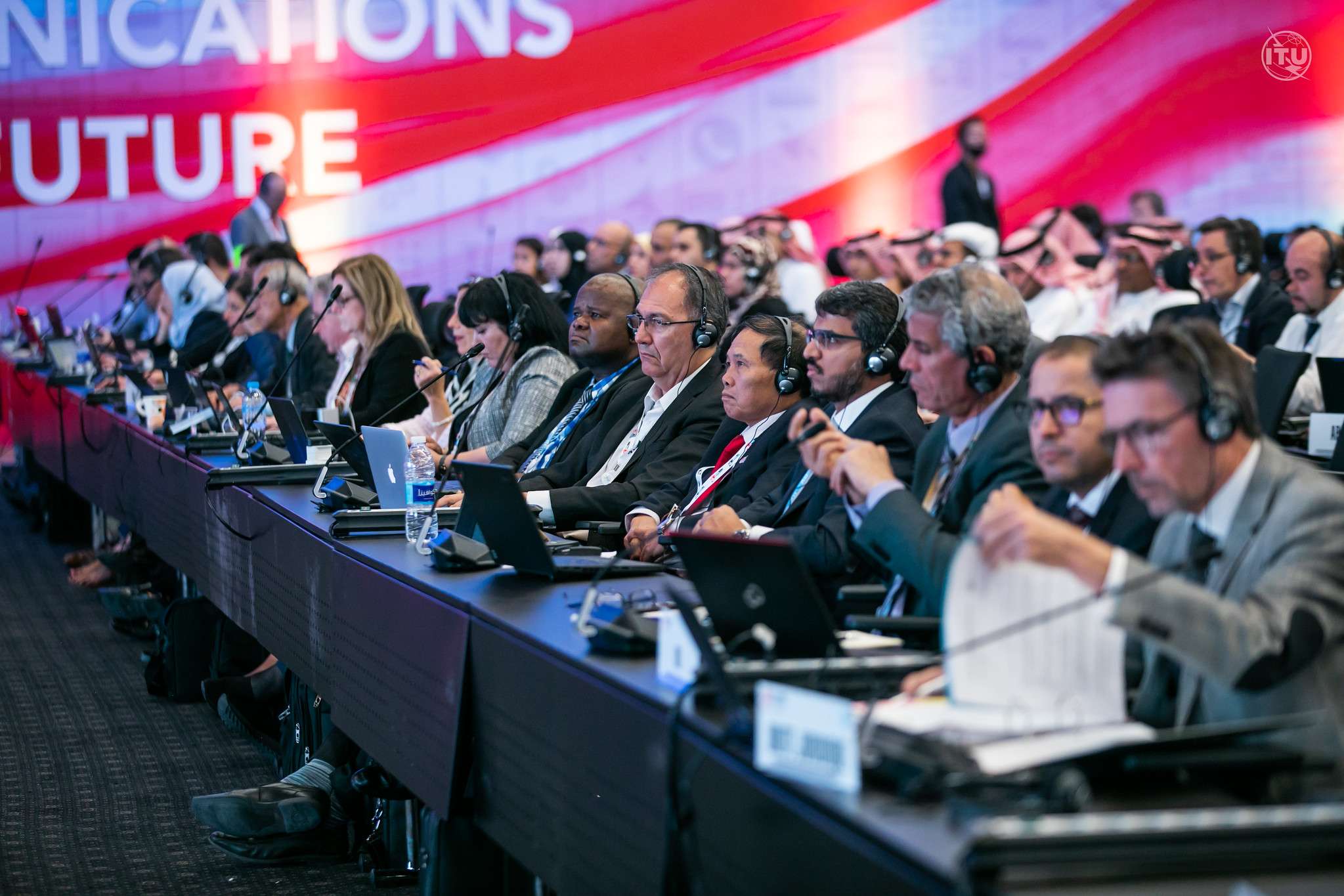TAMPA, Fla. — A proposal to review satellite power limits set greater than a decade ago to avoid signal interference between different orbits is some of the divisive amongst operators ahead of WRC-23, a four-week meeting kicking off Nov. 20 in Dubai to update global spectrum rules.
These limits, often known as Equivalent Power Flux Density (EPFD) limits, cap non-geostationary satellite power to avoid disrupting the geostationary spacecraft they fly under while passing over the equator.
Approving the proposal to review EPFD rules at WRC-23 would see the United Nations’ International Telecommunication Union (ITU) study these limits and — depending on the outcomes of those studies — propose regulatory changes that might be up for debate at the following conference in 2027.
Amazon announced a coalition with three think tanks Oct. 31 to push delegations heading to WRC-23 to adopt the proposal to review EPFD rules, which were first put into radio regulations back in 1997 on a provisional basis.
The principles don’t account for improvements in satellite technology and spectrum management principles through the years, based on the Alliance for Satellite Broadband, and ultimately reduce the supply and increase the fee of broadband services from non-geostationary orbit (NGSO).
Julie Zoller, head of world regulatory affairs for the Project Kuiper broadband constellation Amazon is plotting in low Earth orbit (LEO), said outdated EPFD rules constrain NGSO systems greater than is essential to guard their counterparts in geostationary orbit.
Hot topic
Executives from satellite operators SES and Telesat sparred over the proposal to review EPFD rules during a Nov. 7 webinar on the WRC-23 agenda hosted by .
Luxembourg-based SES operates satellites in geostationary and medium Earth orbit. Telesat of Canada is a geostationary operator planning to deploy industrial LEO broadband satellites in 2026.
EPFD rules already strike the correct balance between protecting geostationary satellites and enabling competition from NGSO newcomers, said Anna Marklund, director of spectrum management and development at SES, who pointed to large constellations akin to SpaceX’s Starlink and people within the works by the likes of Amazon.
It took loads of effort and time to ascertain EPDF rules, and Marklund said reviewing them can be a big drain on resources higher spent on more pressing spectrum issues.
“Satellite technology development just isn’t tied to the EPFD,” she added.
As a substitute, she said the technology advances seen in NGSO are linked to kinds of orbits, which remain largely unchanged from when EPFD rules began to be developed twenty years ago.
“The principles were written an extended time ago and so they’re price revisiting,” countered Elisabeth Neasmith, Telesat’s senior director for regulatory issues.
While possibly nothing would change following the review, she said the proposal must be adopted at WRC-23 with a view to have the conversation.
Marklund asserted SES just isn’t against having a conversation around reviewing EPFD rules, but that the time just isn’t right to prioritize the review during treaty-level negotiations for changing spectrum rules.
Still, it could be higher to refine EPFD rules in order that they address the protection of specific geostationary satellites quite than a whole geostationary arc that’s seeing less activity amid a shift toward NGSO systems, based on Ruth Pritchard-Kelly, a principal at satellite regulation specialist RPK Advisors.
Pritchard-Kelly is a former head of regulatory affairs at SES and likewise at OneWeb, the LEO operator that recently merged with Eutelsat.
The proposal also has implications for ensuring equitable access to space, noted Jennifer Manner, senior vice chairman of regulatory affairs at EchoStar, a U.S.-based geostationary operator planning to start out deploying 28 LEO satellites next yr for connecting distant Web of Things (IoT) devices.
Specifically, it could impact spectrum bands put aside in geostationary orbit for countries to make use of once they’re ready. Manner said “I’d be shocked if the developing world didn’t weigh in on this” as they face losing orbital rights.
The EPFD issue underlines the complexity of negotiations facing WRC-23 delegates this yr, said Katherine Gizinski, CEO of space consultancy firm River Advisers.
Ultimately, she said it’s necessary the WRC-23 negotiation process works as intended, and that every one the varied facets of issues on the agenda are regarded as regulators seek a cohesive regulatory playing field for satellite and terrestrial communications.







